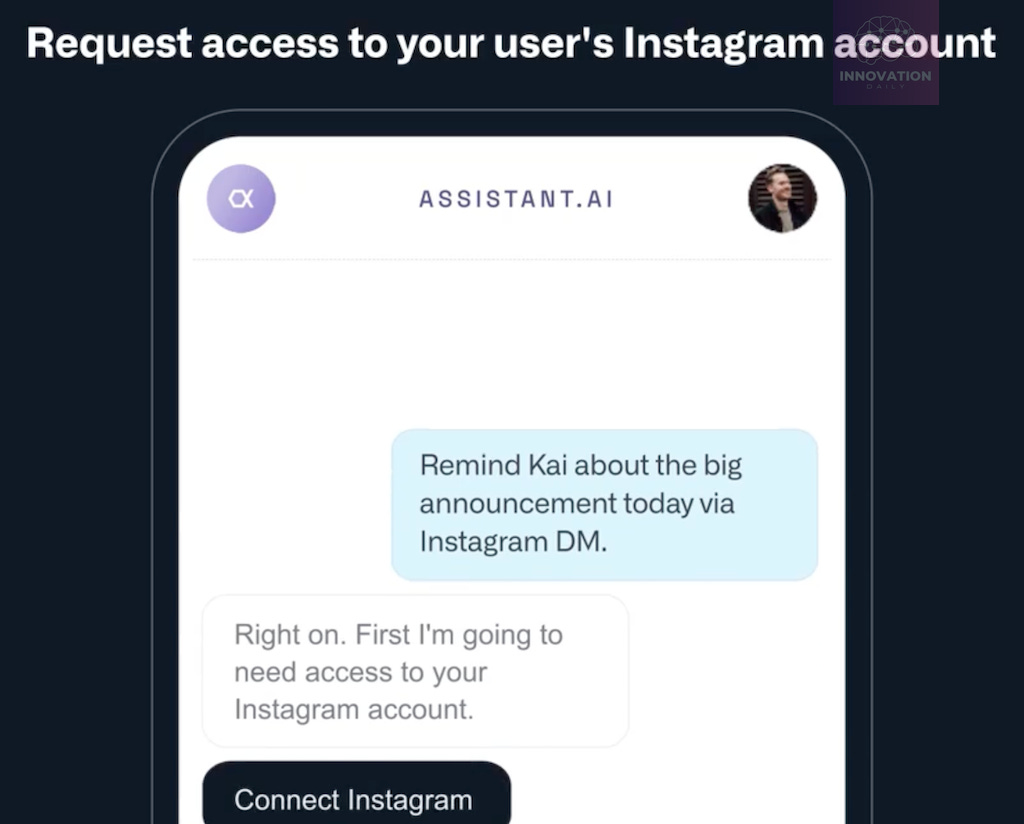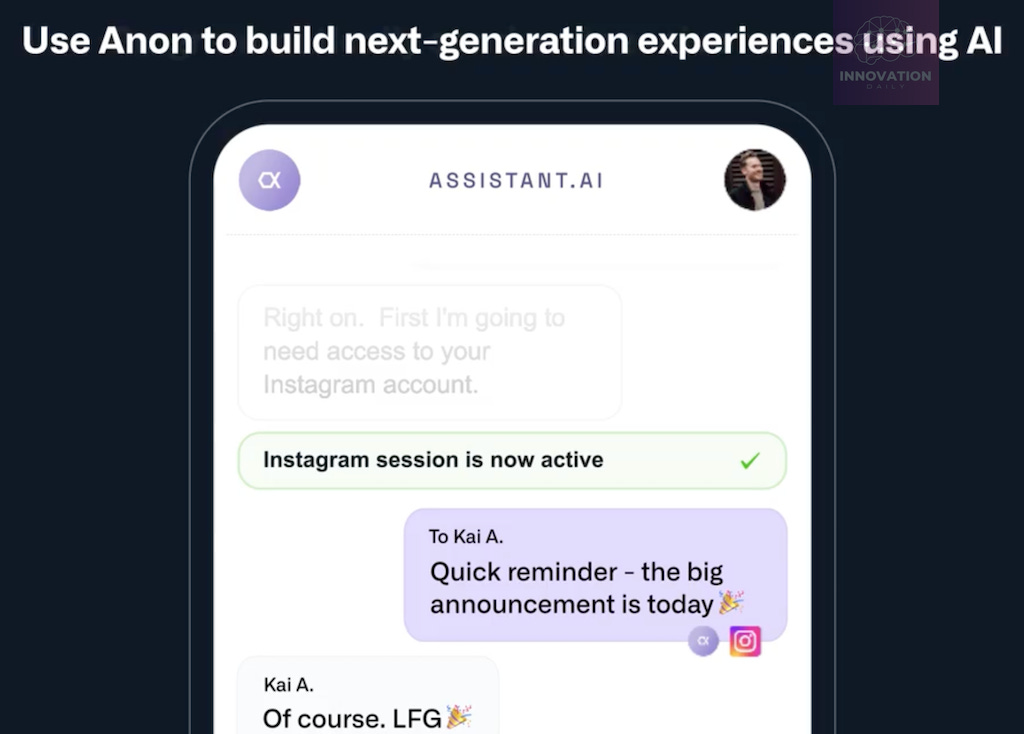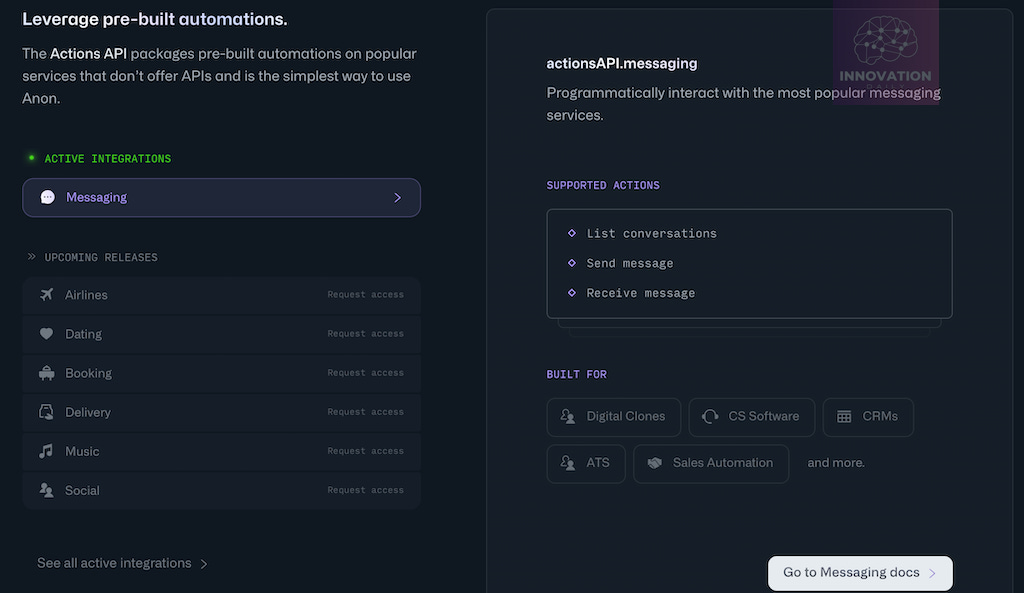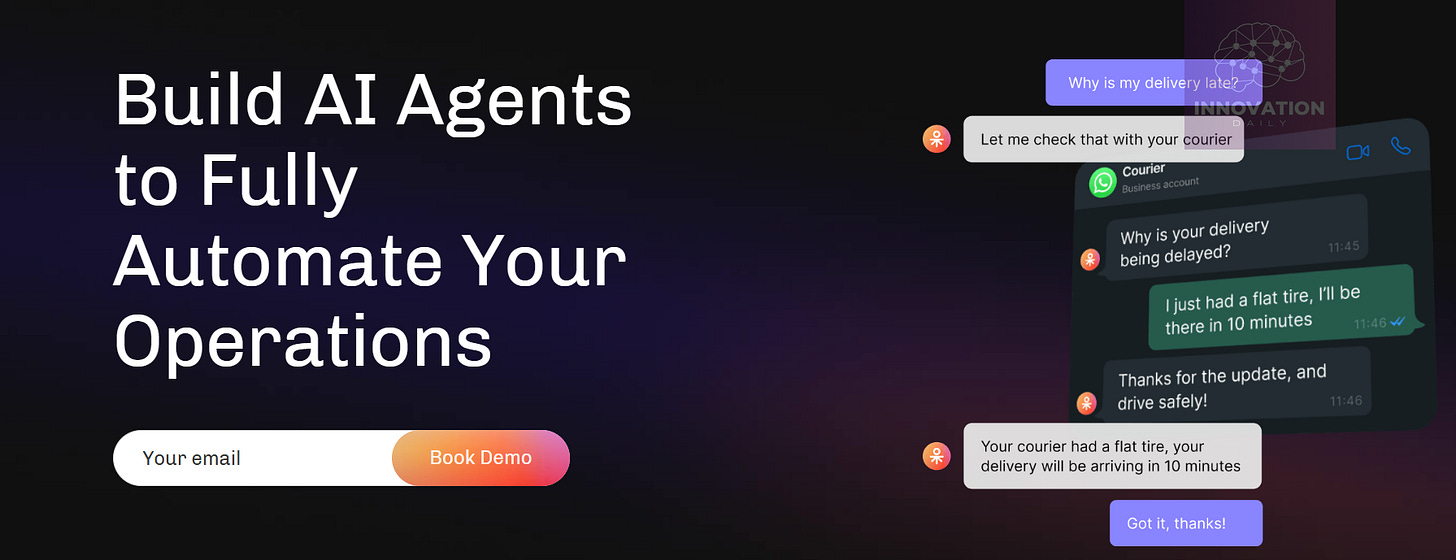The Missing Link
Today’s featured startup is quietly working on the layer that makes AI agents not just smart — but truly capable.
Project Overview
Anon is building an "AI Internet Integration Platform."
A bold statement — but what does it actually mean?
Here’s the idea: imagine telling your AI assistant to remind a colleague about tomorrow’s event via Instagram DM. For the assistant to do that, it needs access to your Instagram account. But how can it send the message without compromising your login and password?
This is where Anon steps in. Instead of giving your credentials to the assistant, you authorize the connection via Anon. It shows you a secure window where you log in to Instagram yourself — and once that’s done, the assistant gets safe, temporary access to perform the required action. You can revoke this access anytime via settings — effectively, through Anon.
The same process works across any number of external services. AI assistants can be empowered to perform tasks on your behalf — sending messages, retrieving information, even initiating transactions — without needing to embed anything into the third-party services themselves. Only the assistant needs to support Anon.
Anon enables this by developing plug-and-play modules for the most widely used internet platforms. Developers can also build custom integrations using Anon’s library. So far, Anon has built 10 such modules and one unified messaging library, and is currently piloting integrations with its first clients.
Even at this early stage, the startup has already raised $6.5 million in funding.
What’s the Gist?
This approach feels familiar — and for good reason. Think Plaid: the fintech infrastructure company that created a standardized way to connect apps with user bank accounts. Developers use Plaid to access financial data securely — and they pay for the privilege.
In 2020, Visa tried to acquire Plaid for $5.3 billion, twice its valuation at the time. The deal was blocked by U.S. regulators — but a year later, Plaid raised new funding at a $13.4 billion valuation.
Anon is trying to do something similar for the world of AI — becoming the go-to infrastructure layer for secure, seamless integrations with external services. While the founder compares Anon to login solutions like "Sign in with Google" or Facebook, the Plaid analogy is more fitting — especially considering the potential scale.
There’s also a broader trend here. Take AgentsForce, for example — a YC-backed startup building AI bots for customer service. Their bots can handle far more requests than traditional ones — not because their AI models are better, but because the bots are capable of real-world action. They don’t just answer questions — they initiate conversations, update databases, cancel deliveries, and issue refunds.
To do all that, the bots need access to corporate systems and external platforms — just like AI assistants need access to personal services. And that access must be secure, flexible, and standardized.
That’s exactly what Anon enables — making it a foundational layer for the future of capable, action-driven AI agents.
Key Takeaways
Still early — and open: Anon is in its infancy. If you’re thinking of building Plaid-for-AI, the race has just begun.
Bigger picture: AI-to-AI protocols: Soon, every person will have an AI assistant — and every service, an AI bot. These bots will need to talk to each other. Marketplace platforms, for instance, could evolve into ecosystems where AI assistants negotiate with AI sales bots — asking questions, verifying details, haggling over price, and coordinating delivery.
To make that work, we’ll need a shared communication protocol. Rather than integrating Anon-like modules with every individual store, we’ll need a unified standard that every service-side AI bot adheres to — with all the necessary functions and structured communication formats baked in.
Massive opportunity in services marketplaces: Product marketplaces will benefit from this shift — but service marketplaces stand to gain even more. Today, most of them are glorified business card directories, requiring manual follow-up for every interaction. AI-first protocols could revolutionize how service platforms operate — turning static listings into dynamic, bot-powered workflows.
This opens the door to a whole new wave of startups. Some, like Scnd (France), Lottie, and Carma, are already pointing in that direction. The first real AI-native services marketplace could completely reshape the space — and Anon-style integration may be the key that unlocks it.
Company info:
Anon
Website: anon.com
Last round: $6.5M, 24.04.2024
Total investments: $6.5M, across 1 round










